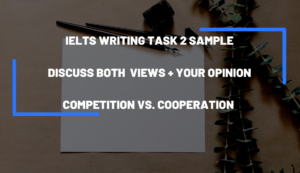Some test takers find the listening module to be the most difficult section of the exam. This is because they don’t prepare for the test the right way. In this article, we give you seven tips to improve your listening skills, which will help you achieve a high score on the test.
1. Know the test inside out
The first step towards achieving a high score on any test is to know what you can expect to see on the test day. In our complete guide to the IELTS listening module, you can find all the information about the test structure, types of questions, and how you can answer each one. Make sure to read it thoroughly before you start practicing.
2. Listen to real-life audios of different accents
You will hear different native speaker accents on the test; therefore, you need to familiarize yourself with them. A good way to do this is to listen to radio stations and podcasts from the UK, the USA, Canada, Australia, and New Zealand. They usually have programs that discuss various social, economic, and educational topics, which you will also hear in the third section of the test.
3. Practice multitasking
The listening section is not just like a simple listening exercise. During the test, you should be able to listen to the audio and write down the answers or your notes simultaneously; otherwise, you might miss the next one or two answers. Watch and listen to TED-ED YouTube videos or the radio stations that you have chosen, and take notes. If your notes are not good enough, or if you cannot understand the audio while writing, chances are you will not do well on the test either. However, such weaknesses can turn into strengths with enough practice. So, start doing this practice today and keep doing it until you become good at it.
4. Be ruthless about your mistakes and weaknesses
This doesn’t mean that you should criticize yourself for every mistake that you make. On the contrary, you should welcome mistakes with open arms because they indicate what you need to improve. Simply put, you need to understand why you make a particular mistake rather than just checking for the correct answer. If you don’t know why you make a mistake, you will most probably make the same mistake in another similar question. For example, some students say that they can understand everything, but sometimes they don’t hear the answer. They need to go back and listen again. Many of them are surprised to see that they have missed a very easy and obvious answer. Most of the time, the problem is their lack of focus. In other words, they listen to the audio, but their minds drift away in the middle of the activity. Sometimes it’s because of the fact that they are not used to focusing for a long time (30 minutes nonstop). This problem can be dealt with by doing a lot of practice. The more you do similar activities, the stronger your brain becomes. In some other cases, students take the test without having the required mental energy, which brings us to our next tip.
5. Follow a brain-friendly diet
As for the foods you need to include in your diet, We’re not going to go to the details of what exactly you need to eat because it is out of the focus of this website and article. You can find plenty of information about such foods by a simple Google search. Find a reputable source and follow their advice on this matter.
6. Enjoy the process and don’t look at it as a chore
It is true that most candidates take the exam for migration or application purposes and not to improve their language skills. However, many of them ignore the fact that one makes much better and faster progress if they find a way to enjoy the activity. In other words, if you don’t like something, you are telling your mind that it is not essential and that you want to get rid of it as soon as possible. One way to make the process enjoyable is to watch or listen to the materials that interest you. Believe it or not, you don’t need to practice only with IELTS-related materials to score higher. Simply put, you need to become a better language user in order to become a high-scoring test taker.
7. Check your progress regularly
Final Note:







